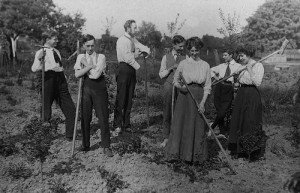 Listed below is a selection of my writings on history, dating from the 1990s to the present. If you are interested in something I’ve written that doesn’t appear here, please let me know and I will try to help. Links to groups, activists and researchers in related areas can be found in Links and Resources.
Listed below is a selection of my writings on history, dating from the 1990s to the present. If you are interested in something I’ve written that doesn’t appear here, please let me know and I will try to help. Links to groups, activists and researchers in related areas can be found in Links and Resources.
For me the most valuable histories speak in many voices, raise more questions than answers, and provide stories and analyses that feed the imagination and suggest new possibilities. (2010 the Gender Politics of Anarchist History)
‘A Poet among the Social Reformers’, Elizabeth Gibson Cheyne: Suffragist, Socialist and Freethinker 2023. British poet Elizabeth Gibson Cheyne contributed to the ferment of new ideas about art, religion, poetry and politics in the early twentieth century. She was a suffragist, socialist and freethinker as well as a poet, and her social networks included artists, feminists, reformers and revolutionaries.
Gibson [married name Cheyne], Elizabeth [known as Elizabeth Gibson Cheyne] (1869–1931) 2023. Biographical article about Elizabeth Gibson Cheyne published in the Oxford Dictionary of National Biography online in July 2023.
‘I didn’t know I was the child of unusual parents’: Tom Keell Wolfe interview notes 2022 (1981) Tom Keell Wolfe, the son of anarchists Lilian Wolfe and Tom Keell, talks about his parents, life in the anarchist colony Whiteway, war resistance, and friendships with Emma Goldman, Sylvia Pankhurst, George Orwell and others, in this 1981 interview.
‘War is a business of innumerable personal tragedies’: Wilfrid Gibson, Elizabeth Gibson Cheyne and the First World War 2016. Compares the changing responses to the First World War in the writings of Wilfrid Gibson and his sister and fellow poet Elizabeth Gibson Cheyne. Revised version of article published in Dymock Poets and Friends, No 15.
Elizabeth and Wilfrid Gibson: Art For Life’s Sake? Politics, Religion and Poetry 2014. Committed to ‘Art for Life’s Sake’, both poets wrote about suffering, injustice and social responsibility. Similarities and differences in their beliefs show in the form and content of their work. Article from Dymock Poets & Friends, No. 13.
From the Wilderness to the Beloved City: Elizabeth Gibson Cheyne 2012. ‘Gautama of India, Jesus of Nazareth, Emerson of Concord, Abdu’l-Bahá of Persia … one God, though called by innumerable beautiful names’, wrote Elizabeth Gibson Cheyne after meeting Abdu’l-Bahá. Talk given at the Commemorative Day celebrating the centenary of Abdu’l-Bahá’s visit to Oxford.
Wilfrid Gibson: Poetry, Family, History 2012. Discusses Gibson (my grandfather) as poet in the family and poet of family, raising questions about the relationship between poetry and autobiography. Article from Dymock Poets and Friends, No.11.
The Gender Politics of Anarchist History: re/membering women, re/minding men 2010. Gendered approaches to anarchist history can generate new ideas about anarchism past, present and future. Paper given at PSA conference, Edinburgh, 2010.
Speaking Desire: anarchism and free love as utopian performance in fin de siècle Britain 2009. Anarchists and others debate free love in theory and practice. What is the relationship between sexual freedom and social transformation? Chapter from Laurence Davis and Ruth Kinna, eds, Anarchism and Utopianism.
Sex Bombs: anticipating a free society 2009. Anarchism, homosexuality and sexual politics in the late nineteenth and early twentieth century. Review article from Anarchist Studies, 17:1.
Desire, delight, regret: discovering Elizabeth Gibson 2008. Researching an unknown relative, poet and feminist Elizabeth Gibson, raised tricky questions of methodology as well as the challenges of combining family history and academic research. Article from Qualitative Research, 2008:8.
Enemies of the State? Homosexuality in the Nineteenth Century 2005. Discusses links between sexual and political outlaws. Review article from Anarchist Studies 13:1.
Anarchists, Aliens and Detectives 2005. When an ex-anarchist sued an ex-policeman for libel, the trial became a melodrama linking anarchists, aliens and terrorists in the run-up to the Aliens Act of 1905. Article in History Today, 55:12.
Shoulder to Shoulder: Wilfrid and Elizabeth Gibson 2004. Discusses the close relationship between the sibling poets, and the influences on their artistic and political development. Article from Dymock Poets and Friends, No.3.
No Place For Women? Anti-utopianism and the utopian politics of the 1890s 2002. How do the realistic and practical, the utopian and impossible, become polarised? And what difference does gender make? Discusses women’s fictional and non-fictional accounts of utopian experiments in 1890s England. Article from Geografisker Annaler 84 B.
It’s What You Do With It That Counts: Interpretations of Otto Weininger 1998. ‘How can one classify and label the different kinds of love?’ Discusses how fin-de-siècle feminists and sexual radicals creatively reinterpreted Weininger’s misogynist theories to challenge restrictive categories of sex and gender. Chapter from Sexology in Culture: Labelling Bodies and Desires, eds. Lucy Bland and Laura Doan.
Sex, Politics and Housework 1993. Problems and tensions between men and women in utopian communities are nothing new, especially when it comes to sharing the housework. Chapter from Diggers and Dreamers 94/95, eds. Chris Coates, Jonathan How, Lee Jones, William Morris, and Andy Wood.